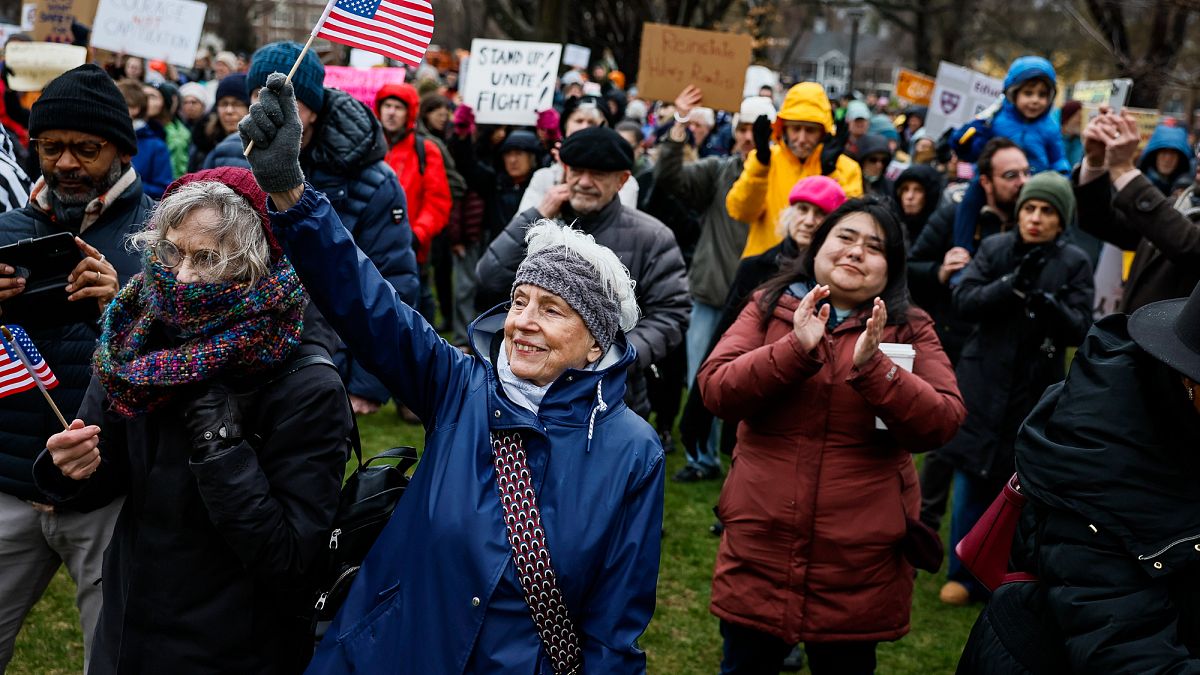The US federal government has said it is freezing more than $2.2 billion (€1.9bn) in grants and $60 million (€52.9m) in contracts to Harvard University.
The announcement came just hours after the institution refused to comply with a list of demands made by the Trump administration, which the university’s president said would have undermined its academic freedom.
In a letter sent to Harvard on Friday, the federal government called for sweeping reforms in governance and leadership at the university.
Among other demands, it also sought to end all diversity, equality and inclusion (DEI) programmes at Harvard.
The federal government stated that nearly $9bn (€7.9bn) in grants and contracts were at risk if Harvard failed to comply.
On Monday, Harvard President Alan Garber said the institution would not yield to the government.
“The university will not sacrifice its independence or abandon its constitutional rights,” Garber wrote in a letter to the Harvard community.
“No government — regardless of which party holds power — should dictate what private universities can teach, whom they can admit and employ, or the fields of study and inquiry they may pursue,” he said.
Since starting his second term in January, US President Donald Trump has aggressively targeted some of the country’s top universities over what he and his allies see as their fostering of left-wing beliefs.
The administration has also argued that universities like Harvard have allowed antisemitism to persist unchecked during campus protests opposing Israel’s war in Gaza last year.
As part of its university crackdown, the Trump administration has normalised the withholding of federal funds to pressure major academic institutions into accepting its terms.
Columbia, one of the universities targeted by the government, had $400m in funding frozen. It agreed last month to several of the terms demanded by the Trump administration.
The former US President Barack Obama urged universities to follow Harvard’s example in fighting back against Trump’s demands.
“Harvard has set an example for other higher-ed institutions – rejecting an unlawful and ham-handed attempt to stifle academic freedom, while taking concrete steps to make sure all students at Harvard can benefit from an environment of intellectual inquiry, rigorous debate and mutual respect,” he wrote on social media.
“Let’s hope other institutions follow suit,” he added.

